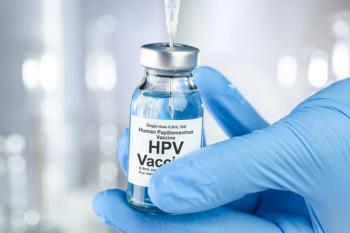
Well Woman
Latest News
Latest Videos

CME Content
More News

A study found that more than half of heart attacks in women aged under 65 years stem from factors beyond clogged arteries.

New research shows oral HRT increases cardiovascular risks in women with type 2 diabetes, while transdermal HRT appears to be safer.

Recent work presented at the 2025 annual meeting of American Society of Bone & Mineral Research found that romosozumab significantly outperformed teriparatide and denosumab in improving hip and spine bone strength.

Review some of the top stories from the Contemporary OB/GYN website over the past week and catch up on anything you may have missed.

Biennial HPV testing and higher vaccination rates could help South Korea eliminate cervical cancer up to a decade earlier than with current policy.

An expert statement updates fracture prevention strategies for postmenopausal women with breast cancer receiving aromatase inhibitor therapy.

A new study finds women with pregnancy complications such as preeclampsia or preterm birth face significantly increased stroke risk at a younger age.

Review some of the top stories from the Contemporary OB/GYN website over the past week and catch up on anything you may have missed.

Counties with persistently low cervical cancer screening rates have nearly double the rates of late-stage diagnoses and mortality, study finds.

A major challenge study finds top-performing AI models can detect breast cancer on screening mammograms with accuracy comparable to experienced radiologists.

Learn the truth about estrogen therapy, including its safety, benefits, and the critical differences between local and systemic hormone treatments.

A large Brazilian study finds that early or late menarche may predict long-term cardiometabolic and reproductive health risks in women.

A recent study found that unopposed estrogen therapy reduces young-onset breast cancer risk, while combined estrogen-progestin therapy increases it.

A major study of over 2 million women reveals that common pregnancy complications significantly increase the risk of stroke decades later.

Eliminating a modest out-of-pocket cost significantly increased digital breast tomosynthesis use and reduced disparities across racial, ethnic, and language groups.

A new study finds women with postpartum hemorrhage face significantly higher odds of cardiovascular disease and thromboembolism for up to 15 years after childbirth.

Review some of the top stories from the Contemporary OB/GYN website over the last week, and catch up on anything you may have missed.

A new study reveals rising breast cancer rates among minority women aged 65 to 74 years, highlighting the need for targeted screening and intervention strategies.

Oral sulopenem (ORLYNVAH; Iterum Therapeutics) was non-inferior to amoxicillin/clavulanate for treating uUTIs in women, per the phase 3 REASSURE trial.

New research shows women receiving Medicaid and support services are significantly more likely to receive treatment for opioid and drug use disorders.

Researchers developed a CRISPR-Select assay to classify BRCA gene variants, improving early breast and ovarian cancer detection.

The American Medical Association urges plant-based diets, exercise, and reduced alcohol to lower breast cancer risk and address racial disparities.

A large study finds that women working night or irregular shifts face significantly higher odds of moderate to severe asthma, unlike their male counterparts.

A recent study found that women with colorectal cancer face an increased long-term risk of pain during sex, early menopause, and pelvic disease.

Patients with non-English language preference face significant delays in definitive breast cancer surgery, according to new research.

















